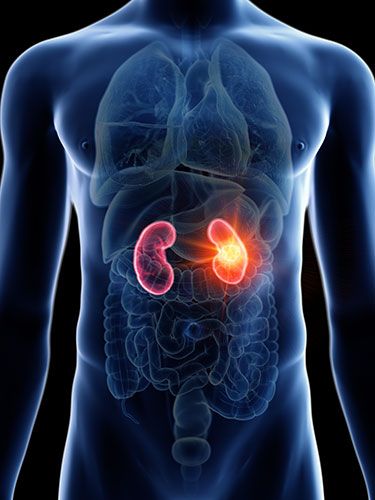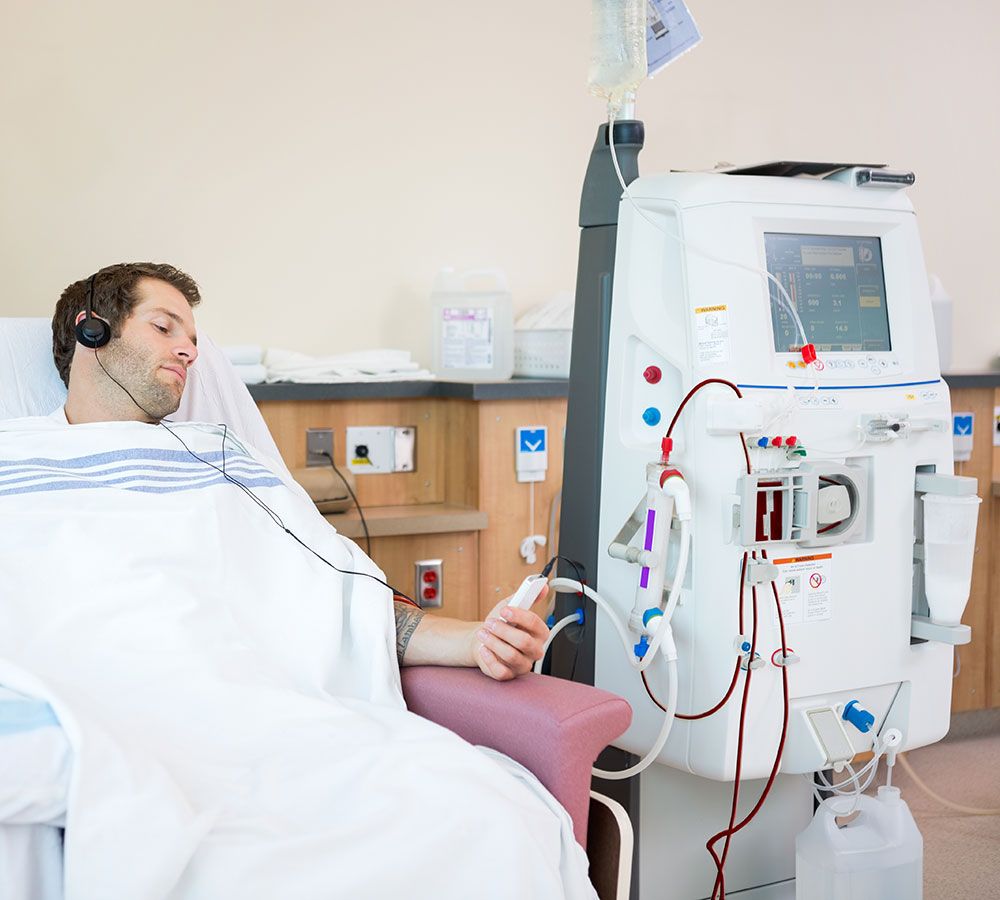Kidney Cancer

What Is Kidney Cancer?
Also known as renal cell cancer (RCC), the most common type of kidney cancer, abnormal renal cells grow out of control in one or both kidneys, which are bean-shaped organs located on either side of the spine, just below the ribs. RCC is among the 10 most common cancers in both men and women. The lifetime risk for developing kidney cancer in men is about 1 in 46 and for women, it is about 1 in 82.
The kidneys are very important organs that filter out wastes from the bloodstream and excrete them as urine. They also help balance water, salt, and mineral levels in the blood. Although RCC typically grows as a single tumor in one of the kidneys, it is possible for a single kidney to develop multiple tumors, or for both kidneys to have tumors concurrently.
Chronic Kidney Disease and Kidney Cancer
There have been plenty of studies over the years to show that there appears to be a reciprocal relationship between Chronic Kidney Disease (or other advanced kidney disease), particularly those requiring dialysis, and kidney cancer. Studies continue to show that people diagnosed with a kidney disease may be at a significantly higher risk of developing kidney cancer as well.
On the other hand, about one-third of the 300,000 kidney cancer survivors in the United States have or will develop kidney disease.
Researchers have identified hereditary, lifestyle, and environmental factors that may increase your risk of developing cancer of the kidney(s). Below are some of the most common contributing risk factors.

Common Risk Factors
-

Male Gender – Men are 2 to 3 times more likely to develop kidney cancer than women
-

Personal or Family History of Kidney Cancer
-

Having Chronic Kidney Disease or other advanced kidney disease, particularly those requiring dialysis
-

Tobacco Use – Smoking tobacco doubles your risk
-

Obesity / High BMI
-

High Blood Pressure / Hypertension
-

Race / Ethnicity – African-Americans, American Indians and Alaska Natives have a slightly higher risk
-

Exposure to Harmful Chemicals – Exposure to the following harmful chemicals (at work or home) increases your risk:
- Cadmium
- Organic Solvents
- Herbicides (i.e. Roundup)
-

Inherited Genetic Mutations:
- Von Hippel-Lindau (VHL) Disease
- Hereditary Renal Cell Carcinoma (RCC)
- Birt-Hogg-Dube Syndrome
How We – And You – Can Help
Arizona Cancer Foundation is a program-based organization whose primary mission is to help people through cancer treatment and survivorship. We provide free services that increase the quality of life while people and their loved ones fight cancer. Specifically, we provide the non-medical supportive services that most insurance companies either don’t cover at all or not to the extent that is actually needed. We have 25 integrative and supportive services that help patients, their family members and caregivers.
If you wish to help us in our mission, please donate to this worthy cause. All accepted clothing (click HERE for an extensive list) and monetary donations are specifically used to help cancer patients, their families and caretakers by means of offering them non-medical, healthcare supportive services, financial aid services and cancer support groups, which help people through cancer treatment and survivorship as we strive to increase the quality of life of all those affected by cancer.
2625 N Craycroft Rd, Suite 215
Tucson, AZ 85712
Phone: 520-324-2840
Operating Hours:
Mon - Thurs: 9 AM - 5 PM
Fri: 9 AM - 1 PM
(Excluding Holidays)
Arizona Foundation for Cancer is a 501(C)3 non-profit organization.
All accepted clothing (click HERE for an extensive list) and monetary donations are specifically used to help cancer patients, their families and caretakers by means of offering them non-medical, healthcare supportive services, financial aid services and cancer support groups, which help people through cancer treatment and survivorship as we strive to increase the quality of life of all those affected by cancer. Please DONATE today!
Note: Practitioners and program leaders are independent contractors
BECAUSE TOGETHER IS ALWAYS BETTER
© Arizona Foundation for Cancer
